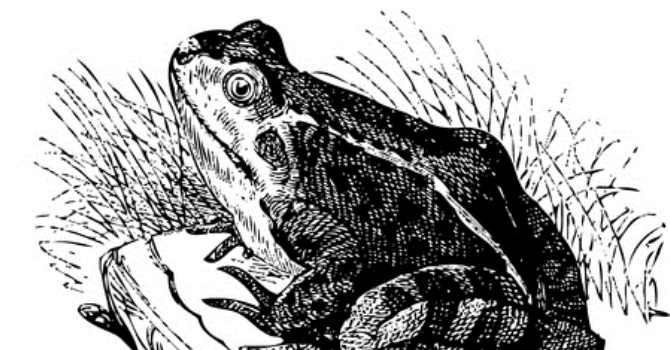
by Noriyuki Morimoto
Matsuo Basho’s famous haiku is about a small unidentified sound of water:
Old pond ? frogs jumped in ? sound of water.
It is unknown whether this scene took place during the day or at night, but it’s better to imagine it in total darkness. Even if it’s not dark, it has to be quiet. When you hear a strange sound in the dark silence, you are disturbed and stricken by anxiety. That anxiety dissolves when the sound is attributed to a frog.
This haiku gains poetic value once it is interpreted as an expression of shifting emotions: anxiety caused by a mysterious sound of water, an attempt to remove that anxiety by attributing it to a frog, and afterwards, feeling a faint but lingering anxiety, given there is no way to confirm that a frog was really the cause.
This emotional shift from anxiety to its removal through rationalization relates to investment philosophy, as investment also involves anxiety caused by the impossibility of finding an answer or describing the situation. The collapse of the euro, a plunge in Japanese government bonds, and the fear of war are potential causes.
Strong anxiety creates a strong desire to describe, or to rationalize by explaining the situation. But what you gain through explaining is just the false sense that the situation has been explained. Thoughtless rationalization brings a thoughtless sense of security, which covers up the fundamental anxiety. Here is the investment philosophy we can learn from Basho.
Indescribable anxiety has no choice but to be accepted. And we can only describe what we can. What we can describe is not the price shifts of the entire market that is so huge that we cannot even grasp its perimeters, but how we analyze the prices of individual, small and specific assets.
It is possible to gain the ultimate strength of overcoming anxiety. Put simply, rationalization is different from conviction. Attributing a small water sound to a frog in a poetic context is one way of rationalization. But to assume the plunge of a frog based on experience and thorough training of distinguishing water sounds is a way of conviction.
Practice, experience, repetition of thorough financial analysis, and artisan-like training to analyze the value of specific investment assets support the conviction to determine value. This conviction fights back the anxiety of market volatility and supports consistent management undeterred by changes in price.
Conviction does not arise from intelligent maneuvers. An artistic capacity to face existential anxiety is needed for a poem to be more than a word game. For investment to be more than a word game and truly an investment, you need to have the capacity to ignore critics’ rationalization of price volatility, and to keep true to your own conviction as an experienced professional.

Chief Executive Officer, HC Asset Management Co.,Ltd. Noriyuki Morimoto founded HC Asset Management in November 2002. As a pioneer investment consultant in Japan, he established the investment consulting business of Watson Wyatt K.K. (now Willis Towers Watson) in 1990.

